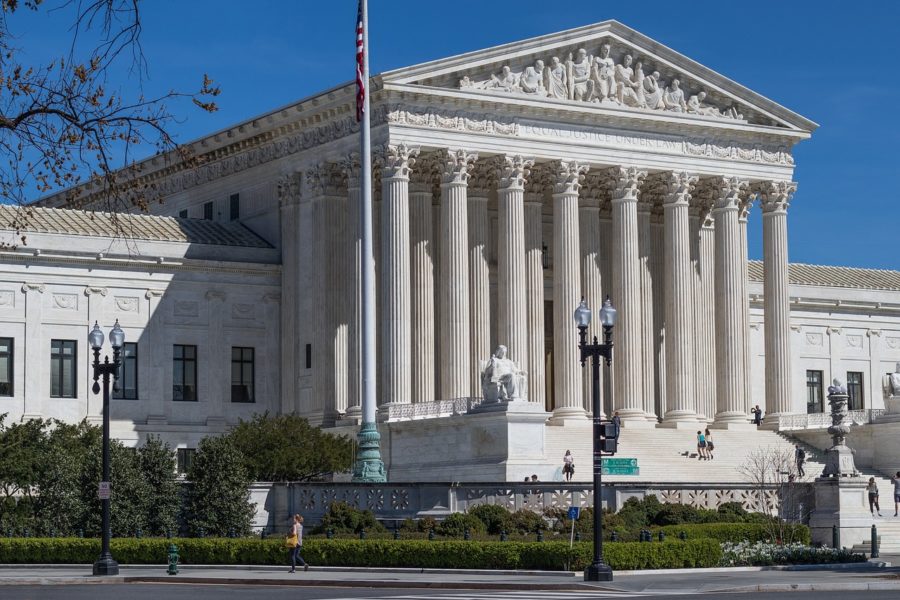The Spotlight on the Highest Court in the Land
January 27, 2023
The U.S. Supreme Court, the highest court in the land, has nine justices who are appointed for life. Every time a justice passes or retires, the sitting President appoints a new justice. And this is a point of contention between the two parties: presidents picks a judge who aligns with their beliefs. The process of picking, interviewing, and swearing in a justice is quite extensive because of the vetting process they go through. The justices have decades of legal knowledge under their belts before they can even be considered for the position. And while they are some of the most highly respected people within the three branches of government, they are not immune to both media and criticism.
In May of 2022, a draft was leaked from the Supreme Court, detailing the possibility of overturning the landmark Supreme Court case Roe v. Wade. Roe, a 1973 decision, established that there was a constitutional right to get an abortion. In June of 2022, the draft that was leaked became the decision in Dobbs v. Jackson Women’s Health Organization, overturning Roe and allowing states to decide how they wanted to proceed with the handling of abortions. After this new ruling, the country became more polarized between staunch pro-life and pro-choice opinions. This case was something that polarized the country in 1973 and polarized it once again nearly 50 years later. This month (January 19), the Supreme Court released its finding on the leaked draft of Dobbs, and announced that it cannot prove who was responsible for the leak.
Even though the Supreme Court is no stranger to the spotlight, Roe being overturned started a continuous news cycle in 2022, as the justices, their personal comments, and their personal lives were thrust into the public eye. The four justices with the most spotlight on them were Clarence Thomas, Brett Kavanaugh, Amy Coney Barrett, and Ketanji Brown Jackson. When Justice Thomas was asked about his thoughts about the case, Thomas wrote that the Supreme Court ” ‘should reconsider all of this Court’s substantive due process precedents, including Griswold, Lawrence, and Obergefell’— referring to three cases having to do with Americans’ fundamental privacy, due process and equal protection rights.”* When Brent Kavanaugh was being vetted before he was sworn into the Supreme Court, he was questioned extensively about multiple sexual assault allegations that occurs during his time in college. Even though he reiterated that he did not commit these crimes, and was eventually sworn in, many still found his testimony not entirely truthful, and still contested his appointment to the Supreme Court. Amy Coney Barrett also faced pushback because of what some considered her extreme views on policing, immigration, and abortion. She was, nevertheless, sworn in, replacing the late Ruth Bader Ginsburg. While Thomas, Kavanaugh, and Barrett were conservatives, the left-leaning justices did not escape the spotlights of the media. Ketanji Brown Jackson faced harsh criticism from many right-leaning news networks, as they cited her reluctance to identify a judicial philosophy and state whether or not she supports the idea of court-packing. There are several common judicial philosophies that inform how a justice interprets the Constitution.
No matter one’s opinion on Roe being overturned, and regardless of the criticism of justices on both sides, one cannot ignore how often topics such as these are in the news. As time continues, more justices will leave for a variety of reasons. Their replacements will start a new cycle with the potential to change the balance of power on the court.
*this quote comes from a Politico article: “Justice Thomas: SCOTUS ‘should reconsider’ contraception, same-sex marriage rulings,” by Quint Forgey and Josh Gerstein” (6/24/22).
